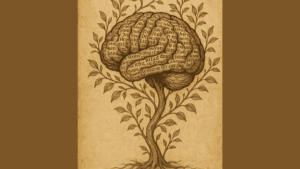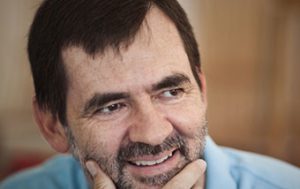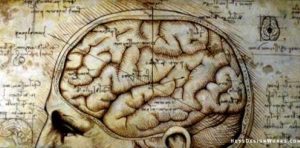Curt Thompson, MD, Anatomy of the Soul: Surprising Connections between Neuroscience and Spiritual Practices That Can Transform Your Life and Relationships, Tyndale Momentum, 2010, 304 pages.
 Why would King David ask God to search his heart—his mind? Couldn’t the king himself engage in introspection? After all, we do it all the time. Well, according to Dr. Curt Thompson, it could be that the king was aware that his mind can deceive him. Says Dr. Thompson in Anatomy of the Soul, “the mind when left to its own volition tends to disconnect. It often conspires to hide the truth (the depth of our emotion, memory, and relational pattern, as well as the reality of a God who loves us beyond belief from ourselves and others.”
Why would King David ask God to search his heart—his mind? Couldn’t the king himself engage in introspection? After all, we do it all the time. Well, according to Dr. Curt Thompson, it could be that the king was aware that his mind can deceive him. Says Dr. Thompson in Anatomy of the Soul, “the mind when left to its own volition tends to disconnect. It often conspires to hide the truth (the depth of our emotion, memory, and relational pattern, as well as the reality of a God who loves us beyond belief from ourselves and others.”
Dr. Thompson, a psychiatrist, possesses a deep understanding of emotions and the wiring of the human brain. He is able to present some of the major themes of Christianity in a fresh way that we can use to deepen our worship and relationships with God and each other. Take, for example, the theme of community. Thompson shows that “as we become more technologically advanced, we invariably become more intra-and interpersonally isolated, and so push against the irrevocable principle that states flatly, ‘It is not good for man to be alone.’” Another theme is the body as the temple of God, which is important for us to understand, Thompson argues, “in order for us to encounter the God who claims to have taken residence.” How often do we think of meeting God within us? Instead, we are more likely to think of Him as some abstract, ethereal being somewhere out there in the cosmos.
Anatomy of the Soul is organized along two pathways. First, Dr. Thompson shows how we can live a life of joy and deep fulfillment by paying attention, being aware of our memories, developing healthy attachments, and forming wholesome connections. The second pathway is about discoveries in neuroscience which point us to the Creator and what these findings reveal about our relationship with the God of the universe and one another.
I strongly recommend Anatomy of the Soul as a good reference material for a cross-section of people.
- If you are a Christian in the mental health profession who is looking to understand the neurological aspects of the brain/mind within a Christian context, then I encourage you to read Anatomy of the Soul.
- If you are a fitness lover or professional or even a nutritionist, then this book will expand your understanding of the body as a place where you encounter God.
- If you are a parent seeking to understand the nature of attachment and how to connect with your children in a disconnected world, then Anatomy of the Soul will shed some light for you.
- If you are in any type of relationship, then, you will find the section on memory very helpful. You will be amazed how the mind remembers many things you are acting upon that you are not aware of in your life.
- If you are a church leader or a member of the body of Christ then this book will help you comprehend why connections are important to the brain and consequently to the renewing of the mind.
- If you want to deepen your relationship with Christ and learn what it means to have an “undivided heart” or what it means to love God with all your mind, soul, and might, then Dr. Thompson’s insights will enable you to discover your first love all over again.
Anatomy of the Soul has a lot of “soul”. It is written with passion and with a beautiful thread of the biblical love story woven throughout it. Sometimes it comes off like a textbook and at other times as a story. One thing that is undeniably clear is Dr. Thompson’s love for God. If words carried energy, then they can be certainly felt in sections when he speaks about God’s transformative love.









